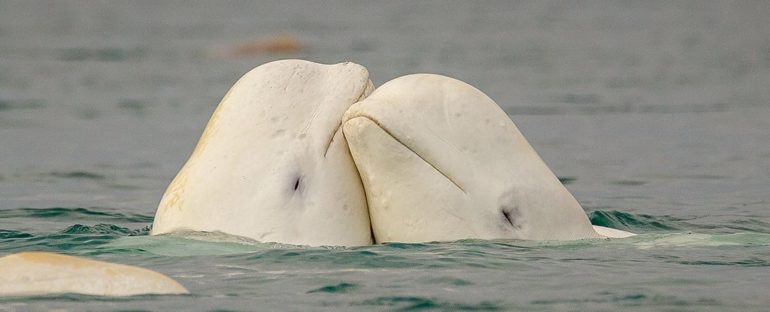Similar to orcas and pilot whales, the enigmatic beluga whale has long been assumed to live out their lives in pods based around close maternal ties. But new research shows their social structures go far beyond sibling quid-pro-quo.
By combining DNA profiling with mathematical network analysis, researchers have found belugas (Delphinapterus leucas) across the Arctic hang out in far more diverse crowds than their other whale species.
Research led by Florida Atlantic University’s Harbor Branch Oceanographic Institute confirms suspicions that belugas regularly interact with their mother’s side of the family, not unlike other closely related species of toothed cetacean.
Matriarchal lineages are common among families of sperm whale, orca, and pilot whale, which routinely have a female whale leading the way. Analysis of the beluga groupings, both large and small, found they often had more than one matriline.
What they didn’t expect were the frequent associations with dad’s side of the clan. Or the close relationships with cousins. Or, more surprisingly still, the hints of networks involving individuals without any close genetic relationship.
“Unlike killer and pilot whales, and like some human societies, beluga whales don’t solely or even primarily interact and associate with close kin,” says lead researcher and marine biologist, Greg O’Corry‑Crowe.
“Across a wide variety of habitats and among both migratory and resident populations, they form communities of individuals of all ages and both sexes that regularly number in the hundreds and possibly the thousands.”
These beluga neighbourhoods are far more like our own complex webs involving grandparents, uncles, second…



